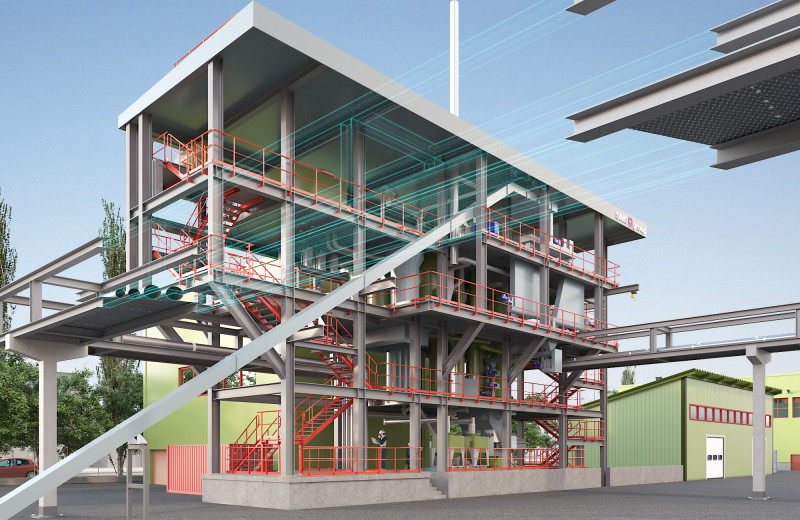From Waste to Value

(Foto: SMS group)
For years, BEST has been working with the Institute of Process Engineering at the Vienna University of Technology to enhance fluidized bed conversion technology for syngas production, a process which, to date, has only been implemented on an industrial scale using wood as fuel. Now a 1 MW pilot gasifier is being erected at the site in the city of Vienna to research and demonstrate the use of waste materials at a scale that allows full integration into the site’s waste incineration processes. The gasifier is the key technology for a series of downstream options to upcycle the syngas produced by the gasifier. The various upcycling pathways to create CO2-neutral green diesel (Fischer-Tropsch (FT) fuel) and green kerosene, mixed alcohols, synthetic green natural gas and green hydrogen, all play a role in the City of Vienna’s decarbonisation strategy. For the SMS Group, a world leader in plant engineering for the steel industry, this new technological field represents an addition to the electricity-based production of hydrogen as an energy source and reducing agent in steel production which it currently offers in its core markets.
The Waste2Value project is driving the use of waste residues to produce hydrogen-rich syngas. The project focuses on waste fuels such as sewage sludge, residues from the pulp and paper industry, and mixtures with waste wood. In a second process step, the syngas is synthesized into liquid fuel (high quality diesel and kerosene). The current stage of the project runs to 2023 and covers construction and start-up of the pilot facility to gain the relevant operational experience. The Waste2Value research programme examines the entire process chain, starting with the waste fuel, and including syngas production, purification, treatment and synthesis through to the final refining and use of the FT fuel in fleet trials for public transport. The plant is the first of its kind in the world designed to demonstrate the use of this technology in a single, end-to-end process in an industrial environment. The project results will allow the process to be evaluated in economic and technical terms, providing the basis for the planned industrial-scale implementation of the process.
Construction of the plant began on 17 September 2020, start-up is planned in Q2 of 2021. The COMET project is funded by the Austrian Research Promotion Agency (FFG) and managed by the K1 Competence Centre BEST. In addition to Wien Energie and SMS Group as noted above, the company partners also include Heinzel Paper, Wiener Linien GmbH, Wiener Netze GmbH and the Österreichische Bundesforste (Austrian Forest Authority), while Vienna University of Technology and the Luleå University of Technology are the scientific partners.
2020-11-05